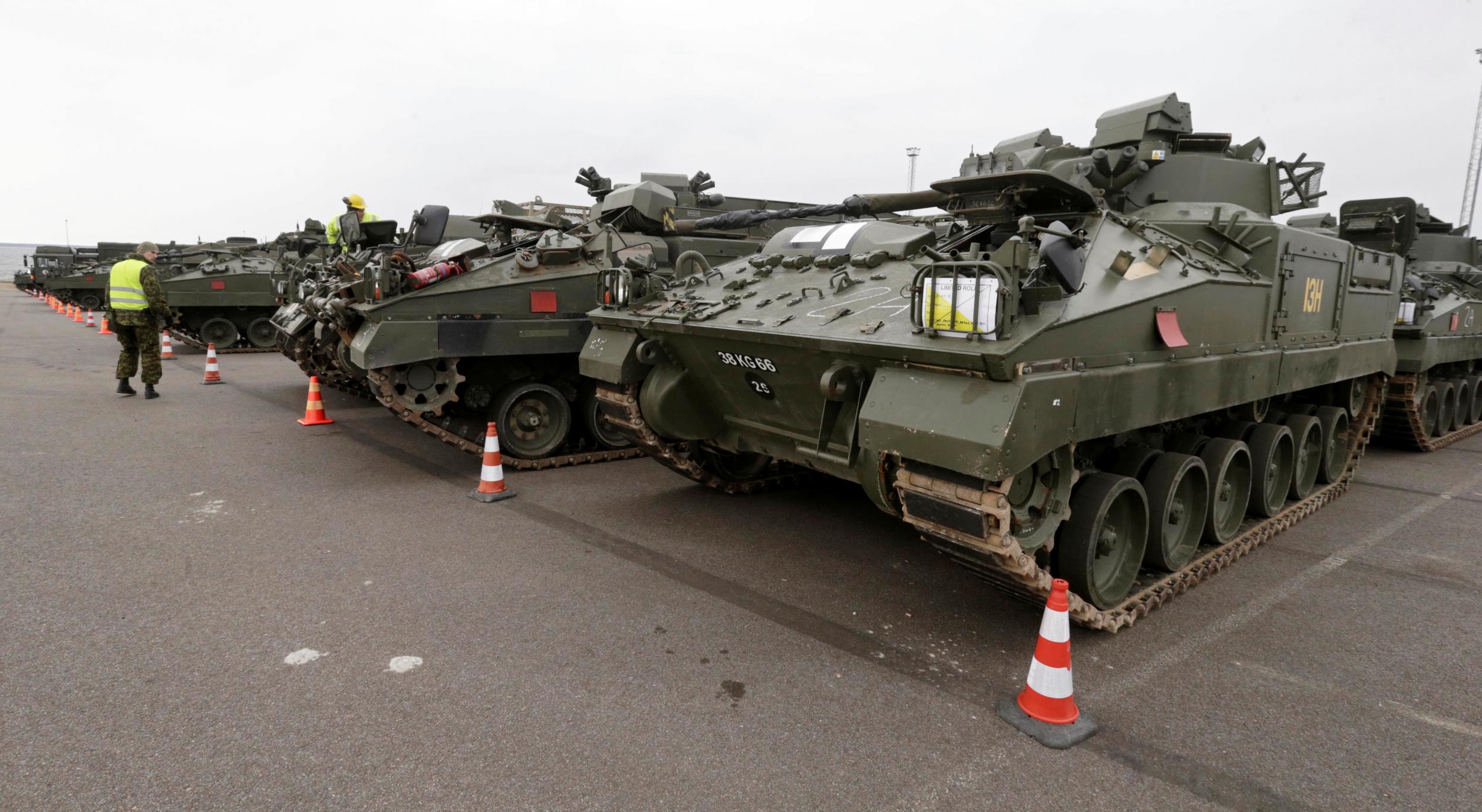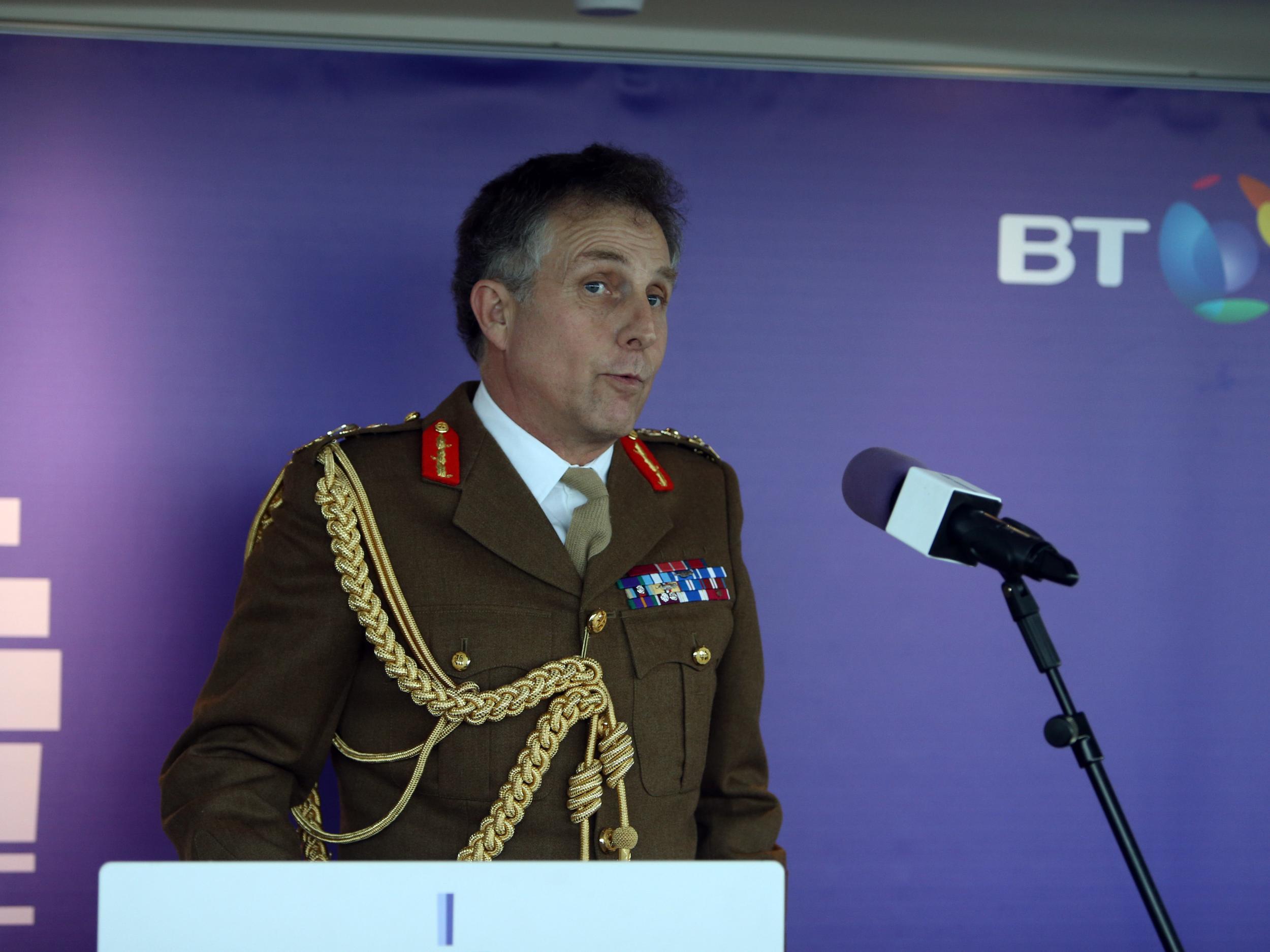UK 'would struggle to match' military strength of countries like Russia unless it invests in defence, army chief warns
General Sir Nick Carter says clandestine cyber offensives by foreign powers will affect lives of ordinary British people

Your support helps us to tell the story
From reproductive rights to climate change to Big Tech, The Independent is on the ground when the story is developing. Whether it's investigating the financials of Elon Musk's pro-Trump PAC or producing our latest documentary, 'The A Word', which shines a light on the American women fighting for reproductive rights, we know how important it is to parse out the facts from the messaging.
At such a critical moment in US history, we need reporters on the ground. Your donation allows us to keep sending journalists to speak to both sides of the story.
The Independent is trusted by Americans across the entire political spectrum. And unlike many other quality news outlets, we choose not to lock Americans out of our reporting and analysis with paywalls. We believe quality journalism should be available to everyone, paid for by those who can afford it.
Your support makes all the difference.Britain risks being vulnerable to enemy action, including cyber attacks, unless adequate resources are urgently devoted to the nation’s defence, the head of the British Army will warn today in a keynote speech.
Pointing to conventional threats, General Sir Nick Carter will stress that Vladimir Putin’s Russia has built an aggressive military force which this “country would struggle to match”. He will describe how the Kremlin has been ready to use its advanced capabilities in conflicts in Syria and Ukraine.
At the same time, the Chief of General Staff will speak of clandestine cyber offensives from abroad which can affect not only public institutions, but the lives of ordinary people in this country.
General Carter’s address, at the Royal United Services Institute (RUSI) comes at a time when the Government has come under severe criticism from politicians and former senior military officers for cutting back on defence spending. At the same time Russia has been blamed for cyber warfare on the West with claims of the US and European elections, as well as the Brexit referendum being targeted.
The Kremlin has showed its military prowess in the battlefield with missile strikes 1500km away in Syria. At the same time, Gen Carter maintains it has kept up constant sabre-rattling in Europe with simulated attacks.
“Our ability to pre-empt or respond to threats will be eroded if we don’t keep up with our adversaries. State-based competition is now being employed in more novel and increasingly integrated ways and we must be ready to deal with them,” Gen Carter will say.

“The threats we face are not thousands of miles away but are now on Europe’s doorstep – we have seen how cyber warfare can be both waged on the battlefield and to disrupt normal people’s lives. We in the UK are not immune from that.”
“We must take notice of what is going on around us or our ability to take action will be massively constrained. Speed of decision-making, speed of deployment and modern capability are essential if we wish to provide a realistic deterrence. The time to address these threats is now – we cannot afford to sit back.”
Britain and the West also need to be aware that conventional threats are still very present. “The traditional threat still remains and last year we saw Russia undertake simulated attacks across Northern Europe (from Kaliningrad to Lithuania), we must also look closely at how countries are now being more creative in how they exploit the seams between peace and war.”
Last month the head of the Armed Forces, Air Chief Marshal Sir Stuart Peach warned that Russia poses a threat to Britain's internet access and trade because undersea communication cables are vulnerable to the country’s navy. Russia’s “modernised” navy has the ability to disrupt the transcontinental cables and that the UK had to bolster its naval forces to counter the threat.
Defence analysts have pointed out that the UK currently has had no submarine-hunting maritime patrol aircraft since 2010 while ships and submarines which could also protect the cables have fallen too.
The Chief of the Defence Staff gave the speech only days after a think tank said an attack on the cables would deal a “crippling blow” to security and commerce and the “threat is nothing short of existential”.
Subscribe to Independent Premium to bookmark this article
Want to bookmark your favourite articles and stories to read or reference later? Start your Independent Premium subscription today.
Join our commenting forum
Join thought-provoking conversations, follow other Independent readers and see their replies
Comments